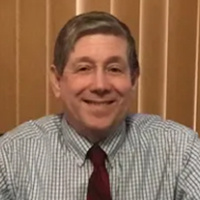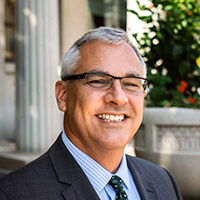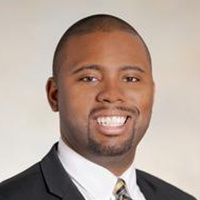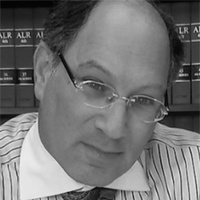 Brooklandville Criminal Lawyers, Maryland
Brooklandville Criminal Lawyers, Maryland
Sponsored Law Firm
-
 x
x

Click For More Info:
-
Law Offices of Charles L. Waechter
1435 Sulphur Spring Road 1st Floor Baltimore, MD 21227 » view mapMaryland Criminal Law The Premiere Criminal Defense Firm
Child Pornography and Criminal Attorney Serving Clients throughout Maryland. Contact today for swift and professional council, your future is on the line.
800-654-7381  Charles Waechter Baltimore, MD
Charles Waechter Baltimore, MDAttorney At Law - MD, 1985
University of Baltimore SOL, J.D. - 1985
 Video Center
Video CenterClick here for our firms introductory video and video center.
 Contact UsEmail or Call 24/7
Contact UsEmail or Call 24/7Call today for your initial evaluation
Sponsored Lawyers
1-10 of 46 matches
Personal Injury, DUI-DWI, Business, Bankruptcy
A native Baltimorean, Mr. Rifkin has spent his career helping people. He graduated college in three years from the George Washington University with distinction, attended the University of Pennsylvania Law School where he won the prestigious Edwin R. Keedy Cup in Moot Court competition. He returned home to practice law which he has done since 1982. He has taught legal courses at Stevenson University as an adjunct professor and has chaired the Maryland State Bar Association Franchise and Distribution Law Committee. He is a long-time member of the American Bar Association Forum on Franchising.
(more)Accident & Injury, Criminal, Business, Real Estate, Estate
For nearly 30 years clients have trusted Timothy Gunning to resolve the biggest legal problems in their lives. Mr. Gunning has represented people and businesses from all walks of life against all manner of adversaries, including the federal, state and local governments, regulators, bureaucracies, big businesses, small businesses, insurance companies, lawyers and law firms, and the rich and powerful. Although his typical case is a criminal defense, personal injury or professional malpractice matter, Mr. Gunning is frequently asked to engage in other high-profile, complex and contentious matters, and has brought his talents to bear with great effect in a wide variety of cases, including professional license matters, corporate and administrative investigations, business litigation, fiduciary litigation, and a variety of tort litigation such as automobile and trucking accidents, sexual abuse and assault, elder abuse, fraud, invasion of privacy, defamation, intentional infliction of emotional distress, wrongful employment discharge, assault and battery, false imprisonment, malicious prosecution, and wrongful death. Mr. Gunning is also frequently engaged by clients mired in difficult disputes with their business partners, family members or neighbors, where the stakes and emotions are high. Mr. Gunning is well known for his ability to assess a given situation, identify strengths and weaknesses and devise and implement highly effective solutions to litigation and investigation matters. While always preparing for a successful trial outcome, and highly regarded for his courtroom skills and many successes there, Mr. Gunning is also very adept at brokering satisfying resolutions to seemingly intractable disputes and controversies. When not working, Mr. Gunning enjoys spending time with his family, traveling, fishing, enjoying the Ravens, the Orioles and all things Boston College.
(more)Accident & Injury, Criminal, Traffic, Employment, Landlord-Tenant
Justin Hollimon is the Founding Partner of The Hollimon Firm. He is a graduate of The George Washington University and The Howard University School of Law. Mr. Hollimon is currently barred in the State of Maryland and the District Court of Columbia. He is also barred in the Federal District Courts for Maryland and the District of Columbia. Mr. Hollimon has significant experience representing clients in both civil and criminal cases. His motto is simple: “Your Life Matters”. No matter the situation in life that you are facing, he reminds each of his clients that their lives matter. Mr. Hollimon serves on the Board of Trustees for the Maryland Office of Public Defender and is an adjunct professor at the University of Baltimore.
(more)Criminal, Accident & Injury, Slip & Fall Accident
Issac Klein has been serving the citizens of Maryland since opening his practice in 1982. He has been featured in front-page news stories for representing individuals facing serious criminal charges and life sentences. Known by judges, police officers, his colleagues, and clients as “an extremely aggressive lawyer who stops at nothing to fight for his clients”, he has helped acquit clients accused of murder, rape, soliciting minors, battery, drug charges, and many others. He has also gained a reputation for winning major settlements in his personal injury cases. Traffic law, including DUI, DWI, and traffic violations, are also an area where Isaac is known as an expert. Any of his past clients will tell you that “you need Isaac to defend you!”
(more)




 Charles Waechter Baltimore, MD
Charles Waechter Baltimore, MD Video Center
Video Center Contact UsEmail or Call 24/7
Contact UsEmail or Call 24/7




